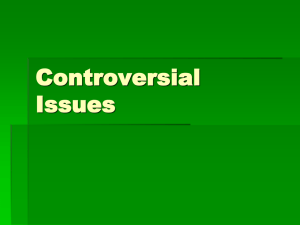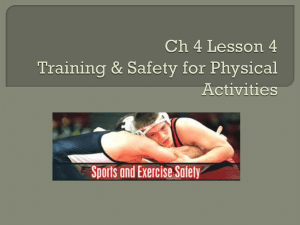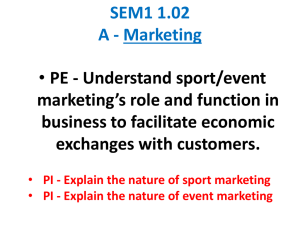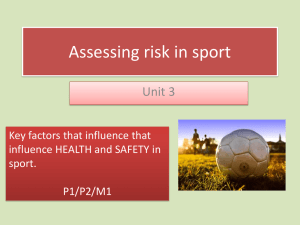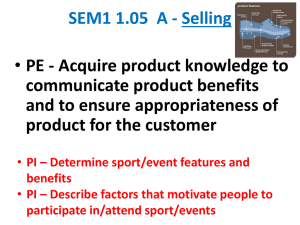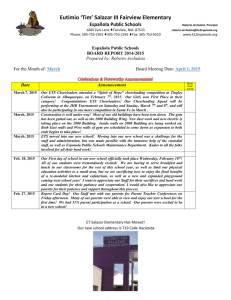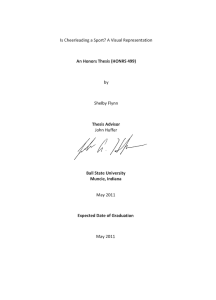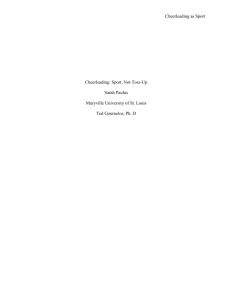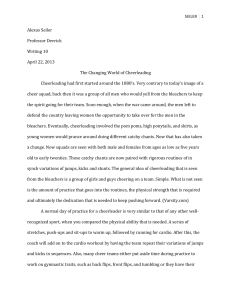Argumentative Essay
advertisement
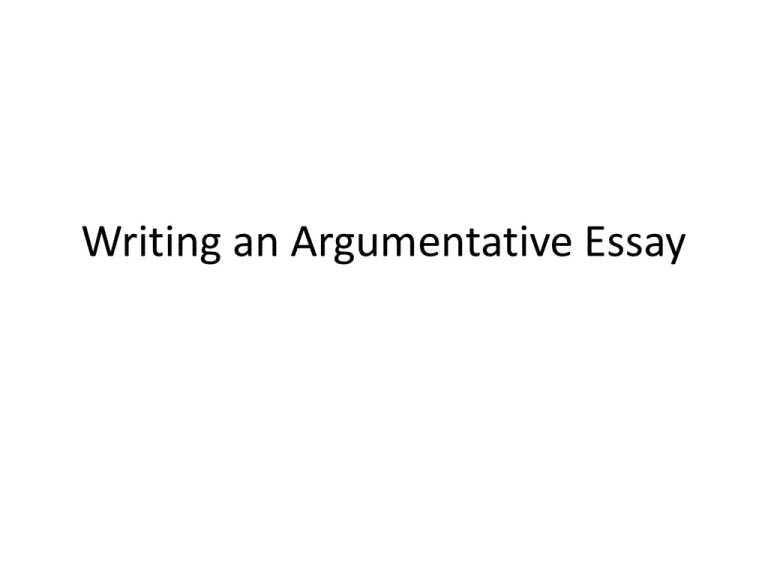
Writing an Argumentative Essay Introduction 1. Attention Grabber (question, statistic, onomatopoeia, anecdote) Ex. What do you think of when you think of sports? I think of a rigorous competition between two opposing sides. 1. Thesis sentence (opinion + 3 reasons) Ex. Cheerleading is a sport because it is physically demanding, requires teamwork, and involves competition. Body Paragraphs • State your reason • Explain the relevance • Evidence • Transition Ex. My first reason for believing that cheerleading is a sport is because of how physically demanding it is. As I said above, if an activity is to be considered a sport, it must be physically rigorous. Cheerleaders must be able to do flips, handstands, and throw and catch their teammates. If that’s not considered physical, I don’t know what is. In fact, some of the moves are so difficult that it requires teamwork just to pull them off, which is a second reason why cheerleading must be considered a sport. Counterargument • State your opponents point of view • Explain why this claim is not a valid argument • Evidence to show why it isn’t valid. • Conclusion Sentence Ex. Some people think that because cheerleaders look pretty while cheering that they can’t be considered athletes. This is a silly argument because many athletes also have jobs as models. Football player Tom Brady and basketball player Dwight Howard are just two examples of athletes from other sports who pride themselves in their looks both on and off the playing field. Just because you can look good doing it, doesn’t mean that an activity isn’t a sport. Conclusion • • • • Restate the thesis ( in reverse) Summarize your main points Closing thought The fact that it is physically demanding, requires teamwork, and involves competition makes cheerleading a sport. • • • • Requirements A successful paper must Include: An attention grabber A clearly written thesis statement 3 reasons to support your thesis. Each reason must be supported by evidence and it must be clear how they relate to your opinion. • A counterargument which is successfully refuted. • A clear conclusion which explains why the topic is important and gives a call to action. Rubric • A – The paper meets all of the requirements, uses formal style, has very few grammatical problems. • B – The paper has a clear claim but one of the reasons lacks satisfactory evidence or the counterargument needs to be further addressed. Paper has mostly formal style and includes a few grammatical errors. • C – The paper’s claim could be more precise. The support given is not enough to be sufficient or the counterargument is not addressed. The paper lacks transitions and has many grammatical errors. • D – Has a weak claim. Does not offer valid reasons and evidence to support the claim. Has major organizational flaws/ ideas are not clearly separated. The paper includes many grammatical errors which make reading difficult. • F – The paper lacks a clear focus and does not provide support for a claim.


